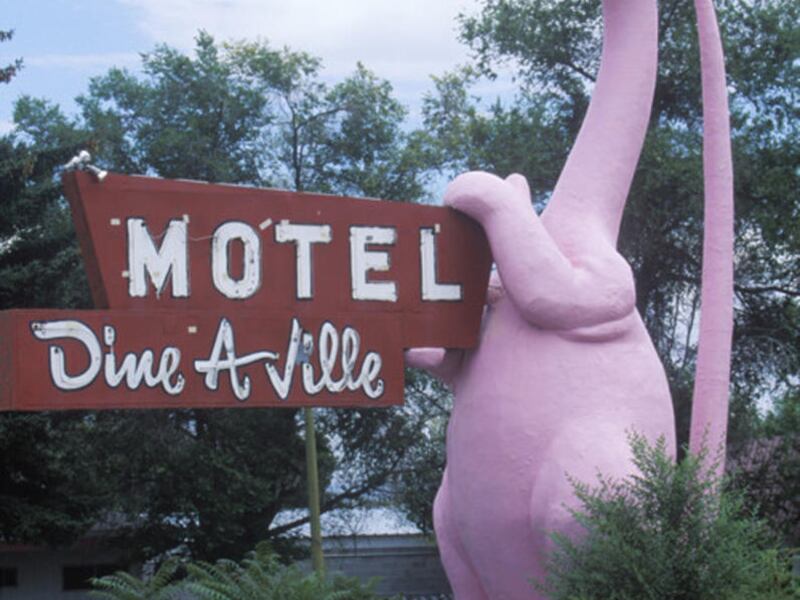The cheery pink dinosaur still welcomes travelers on Route 40. But all is not well in Vernal and the surrounding Uintah Basin, recently booming with the abundance of products originating in the mire back before the dinosaurs' heyday.
Early in August I was passing through Vernal and stopped for lunch. On the restaurant counter I picked up a copy of the local newspaper to see what was happening in a part of the state I rarely visit. Turns out it was the previous week's edition, but it provided substantial food for thought.
My reading of the Vernal Express and the situation it described left me with a sense of alarm, sadness and anger. The alarm was a result of the statistics cited in the feature article. The sadness derived from my awareness of what those statistics mean in terms of hardships for individuals and families. The anger arises from my sense that in the Uintah Basin there's an unwillingness to face some facts and a tendency to deny the reality of what's happening.
Additionally, a troubling underlying theme was that things would get better if the Basin could go backwards, get back to the way things were before. Thankfully, that thought activated my combative sense of optimism. I realized that the worrisome conditions in the Uintah Basin presented the opportunity for ingenuity and free enterprise to help turn things around.
In the newspaper, the front page headline reads "Glimmer of hope for Basin energy." The text states, "Over the previous year Duchesne County lost 1,191 jobs, 734 of which were in extractive industries." The caption under the accompanying photo adds, "Uintah County suffered a dismal year, losing 2,051 jobs, including 937 in extractive industries." In terms of unemployment those numbers translate to a rate of 10.5 percent. Scary — particularly in comparison with the statewide rate of 4.0 percent for the same period.
The glimmer of hope is delivered with a quote from the Duchesne County Commission chairman: "All indications are that we've hit rock bottom. We've leveled off. … We're striving to make sure the drilling takes place and we want it on federal lands" (because of the benefits of mineral lease funds).
On the Opinion Page, another article reinforces the myopia of the Basin's dependence on extractive industries. In "Fossil Fuel Divestment: a Fool's Errand" the founder and CEO of The Institute for Energy Research says, "Carbon rationing via investment revolt is both intellectually and politically misplaced. It is incontrovertible that our modern way of life depends on mineral energies." Well, that's true, but there's also incontrovertible evidence that if we keep pumping vast amounts of mineral energy emissions into the atmosphere there will be devastating consequences for our modern way of life.
The elephant in the room here, the phenomenon that's taking place, is that we're in a transition period, a transition between sources of energy, between extractive sources and renewable sources. It's going to be a decades long transition, but it's going to happen. The main driver of the transition is climate change, global warming, call it what you will. And the main driver of climate change, science agrees, is excessive emissions of carbon dioxide into the atmosphere.
For many years to come, undoubtedly, there will be high demand for petroleum, etc. But it will be an ever diminishing demand since the supply will be depleting and public awareness of the effects of greenhouse gasses will drive ever-increasing demands for restrictions on carbon emissions. (I favor the Citizens' Climate Lobby's carbon fee and dividend, but that's another op-ed.) Positively, this will be accompanied by our free-enterprise system creating new jobs in companies that deliver alternative energy, and innovative products and technologies.
So, come on Uintah Basin, don't pine for your old jobs in a dying industry. Break new ground. Max out free-enterprise. Lead the way to post-petroleum prosperity!
Craig Blouin retired a few years ago from a varied career in the arts, corporate and nonprofit sectors. He has been active in environmental, social and political issues throughout his life.

